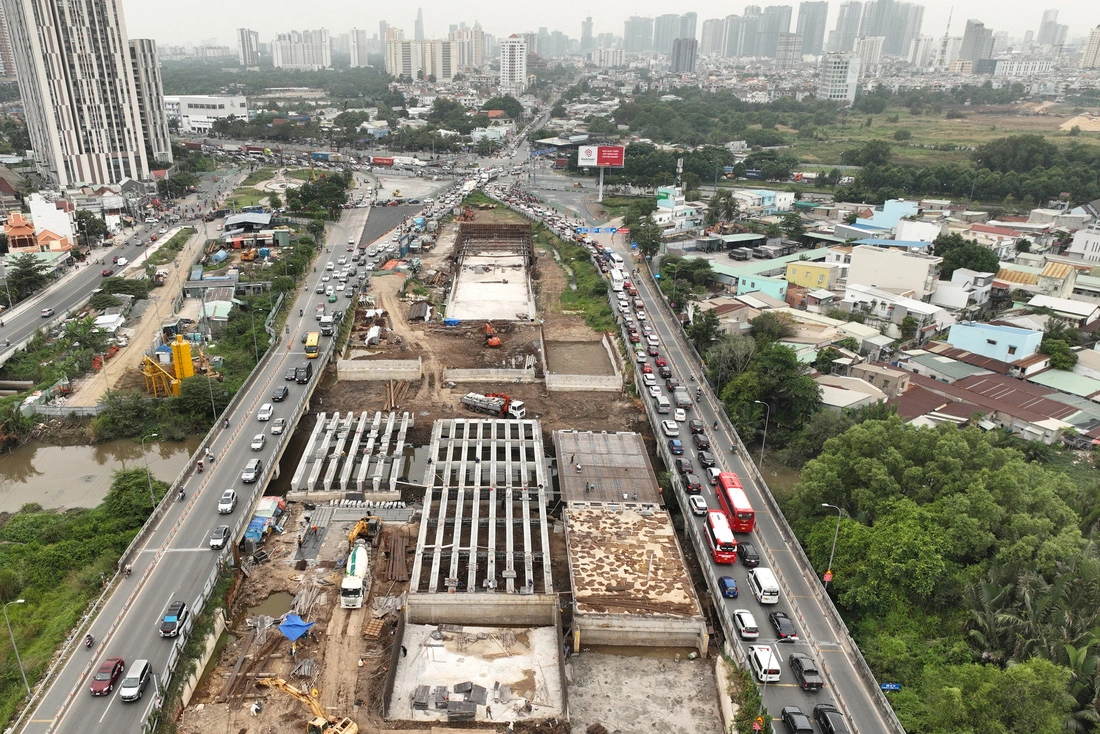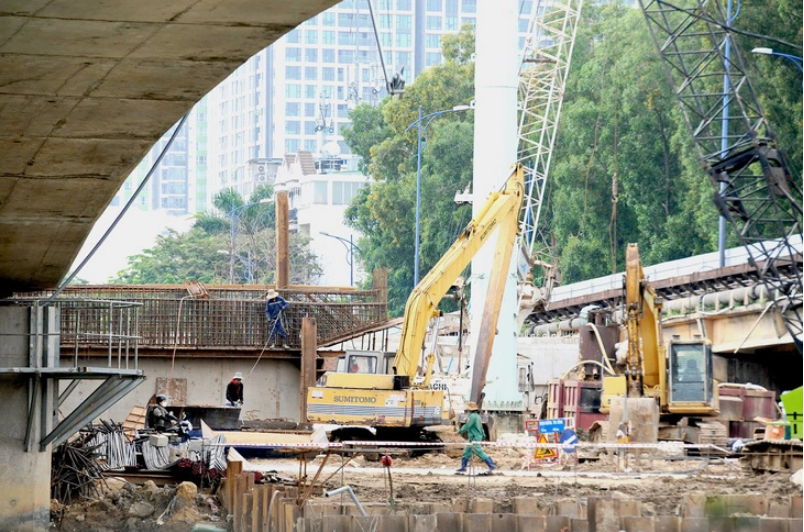Vietnam faces a daunting task of disbursing some VND247 trillion (US$10 billion) in public investment in the last month of this year, representing 35 percent of the full-year amount.
The target seems unachievable but Vietnamese agencies and localities said they would do their utmost to inject the huge amount into the economy.
The prolonged challenge of sluggish public investment disbursement has proven to be a persistent and complex issue over the years.
In a report presented during a regular Cabinet meeting on Wednesday, Minister of Planning and Investment Nguyen Chi Dung disclosed that the country disbursed approximately VND461 trillion ($18.9 billion) from January to November of this year, meeting 65 percent of the target set by the prime minister.
He informed that 10 ministries and central agencies as well as 27 localities reached a disbursement rate of over 70 percent.
Meanwhile, 39 ministries and agencies, along with 27 provinces, reported a rate lower than the country’s average.
Ho Chi Minh City aimed to disburse over 95 percent of its VND70 trillion ($2.9 billion) public investment allocation this year, but only reached 45 percent by November.
Responding to the slow disbursement, the city initiated a 60-day campaign focused on achieving its 2023 goals, particularly in public investment.
In November alone, chairman of the municipal People’s Committee Phan Van Mai issued at least three directives to urge departments, agencies, districts, and Thu Duc City to speed up the disbursement of public investment.
He meticulously listed projects and assigned specific responsibilities to each department, agency, and district.
The municipal leader emphasized that the city would take punitive measures against individuals and organizations impeding the disbursement progress.
Contractors intentionally causing delays in project progress, especially due to incapability, would also face consequences as outlined by the chairman.
Slow site clearance and compensation are the key hindrances to the public investment disbursement pace.
District 3 serves as a stark example of the challenges hindering public investment disbursement.
Previously, the district was listed among the three districts with absolutely no public investment for compensation and site clearance.
|
|
| Vietnamese Minister of Planning and Investment Nguyen Chi Dung has called for increased public investment disbursement in the final month of 2023. Photo: Tu Trung / Tuoi Tre |
This lack of progress has a direct impact on critical infrastructure projects, as evidenced by the 78 land lots in District 3 that remain outstanding for the city's metro line project.
Chairman Mai intervened in District 3's stagnation, demanding immediate progress on clearing the land for the crucial metro line project.
Not only Ho Chi Minh City but also many ministries, agencies, and localities have been confronted by sluggish public investment disbursement.
Public investment is among the three key driving forces propelling the nation's economic development, which underscores the need for its augmentation.
In a bid to enhance public investment disbursement, the Ministry of Planning and Investment has called upon agencies and localities to allocate specific tasks to individuals and units, while placing an emphasis on holding these entities accountable for the efficient disbursement of investments in each project.
The ministry also proposed dismissing officials who display poor performance, engage in harassment, or are linked to irregularities.
The Ministry of Planning and Investment reaffirmed its commitment to vigilant oversight of public investment disbursement across all ministries, agencies, and localities.
The ministry pledged to promptly report any identified issues to the prime minister to facilitate the development of flexible solutions for ensuring the achievement of this year's disbursement target.
Associate Professor Dr. Vu Sy Cuong from the Academy of Finance attributed the slow pace of public investment disbursement to a complex web of procedures involved in public investment projects.
Beyond intricate and overlapping regulations, Cuong observed a lack of initiative among certain agencies, citing their hesitation to invest sufficient effort into public investment projects.
He advocated for a carrot-and-stick approach, rewarding those who meet disbursement targets and penalizing those who fall short.
Like us on Facebook or follow us on Twitter to get the latest news about Vietnam!



















































